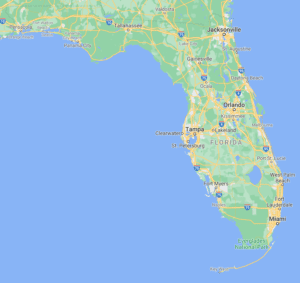Newspaper Editorial Board Says Canadian Drug Importation Will Have Limited Impact
 This editorial by the editorial board was published in The Florida Times-Union on October 7, 2020.
This editorial by the editorial board was published in The Florida Times-Union on October 7, 2020.
Editorial: proposal to import drugs from Canada has limits
A proposal to import prescription drugs from Canada is another example of a system that is broken.
And it's not likely to make a major impact in Florida.
Canada, after all, has a much smaller population than the United States: 38 million vs. 328 million. Florida alone has 21.5 million people.
So even with federal approval to import prescription drugs from our northern neighbor, it will have limited impact under even the most optimistic scenario. And the Canadian government and drugmakers may not cooperate.
The Canadian government told the U.S. government that there aren't enough prescription drugs to spare.
Congress has allowed the importation of drugs since 2003 but no secretary of the Department of Health and Human Services has certified that it would be both safe and would result in a significant reduction in cost.
Six states, including Florida, have passed laws seeking to import drugs, reported Kaiser Health News. Florida Gov. Ron DeSantis has pushed for this ability and is pressing forward with a three-year, $30 million contract.
The price of prescription drugs can be a life-and-death issue for many Americans, such as those who rely on insulin to control their diabetes. Yet insulin is not included in the Trump administration's new rule.
For instance, the annual average cost of insulin for Type 1 diabetes nearly doubled from 2012 to 2016 from $2,864 to $5,705, according to the nonprofit Health Care Cost Institute. Colorado capped the cost of insulin at $100 a month for people with health insurance coverage.
Some Americans are traveling to Mexico for cheap insulin supplies.
Meanwhile, Americans have been purchasing prescription drugs from Canada by driving across the border or using storefronts that connect to foreign pharmacies, reports Kaiser Health News. About 4 million Americans do so, especially in Florida where many retirees get help from stores and even local government agencies to make the foreign purchases.
Representatives of foreign trade groups have warned that such foreign purchases can be unsafe. The administration's program would include a Canadian-licensed wholesaler exporting to a U.S. wholesaler under contract to a state. Eventually, pharmacies could import drugs from Canada.
Florida's foreign purchases would go to Medicaid, prisons and county health departments as well as the broader population.
What's the long-term solution? A free market presumes competition. Yet Medicare is banned from negotiating drug prices.
In cases in which the private market will not support less expensive options for insulin and other prescription drugs, then the federal government could provide supplemental funding.
Some large employers have studied entering the generic drug market while California is going to partner with drug companies to develop its own line of generic or biosimilar drugs.
Just as the free market has been unable to provide enough affordable housing, it appears it also is unable to provide affordable prescription drugs in some key cases. So just as there are tax credits to provide incentives to build affordable housing, there is a role for a private-public partnership to produce some affordable prescription drugs.
A move to import drugs from Canada is likely to have limited impact in Florida and is likely to be more symbolic than practical given the small size of the Canadian market. But it exposes a clear need for the American people.